When the one-act musical March of the Falsettos was first performed in 1981, the disease now known as AIDS didn’t have a name yet. By the time its follow-up, Falsettoland, made its debut in 1990, what was once called “gay cancer” had killed tens of thousands of people.
The former musical depicts the complicated family dynamics between Marvin, his ex-wife Trina, his son Jason, his psychiatrist Mendel, and his lover Whizzer, while the latter — set in the early ’80s, around the time whispers of a plague began spreading — sees them struggle to make sense of the scary times they live in, culminating in the death of Whizzer without a diagnosis.
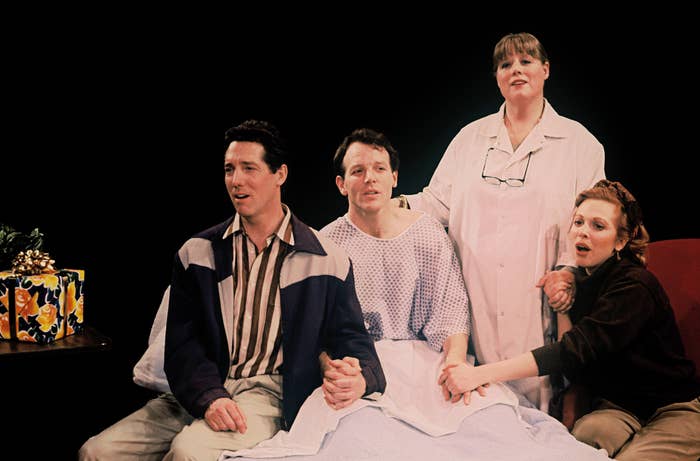
When March and Falsettoland were put together on Broadway to become Act I and Act II of Falsettos in 1992, perceptions of gay identity and of AIDS had progressed even further: There were new medical advancements and more people living with HIV, and gay representation was slowly becoming more prevalent in TV and film. But in the early ’90s, it was still hard to imagine a world where marriage equality would be legal across the US, where HIV would be — within this country — a largely manageable condition, and where queerness would essentially become mainstream. And yet, that’s the context in which the revival of Falsettos, now running at the Walter Kerr Theater, has returned to Broadway.
“Hindsight can make things painfully beautiful and painfully real,” said Jordan Roth, a co-producer of Falsettos alongside Lincoln Center Theater. In 2016, we’re living in a future these characters could scarcely have seen coming, but composer William Finn, who co-wrote the book with James Lapine, certainly had that foresight: The show’s radical depiction of emotionally complex queer characters and its compassionate depiction of a man with AIDS were groundbreaking.
"We, the theatergoing audience, have caught up to the show."
Falsettos was unapologetically ahead of its time. As Lincoln Center Theater producing artistic director André Bishop, who produced March of the Falsettos and Falsettoland, put it, “We, the theatergoing audience, have caught up to the show.” The result is a musical that, despite taking place in the late ’70s and early ’80s and last being seen on Broadway in the ’90s, feels timelier than ever.
It helps that Falsettos is deeply rooted in the idea of transition. In “Holding to the Ground,” Trina’s song after learning her ex-husband’s lover is dying, she sings, “I’m trying to keep sane as the rules keep changing.” While Finn and Lapine may not have known what massive shifts were on the horizon, they knew those movements were inevitable. “Life is never what you planned,” the song continues. “Life is moments you can’t understand.” Like the meaning of those big moments, Falsettos’ full significance was hard to grasp at the time. In retrospect, however, its prescience is clear.
Falsettos reflects a time many people have either forgotten or never known. “We’ve sort of made it through to the other side, but this was really groundbreaking because it was written at the height of the AIDS crisis,” said Andrew Rannells, who is playing Whizzer in the revival. “I am happy that some young people will see the show and maybe learn a little bit about what that time was, because it was very scary.”
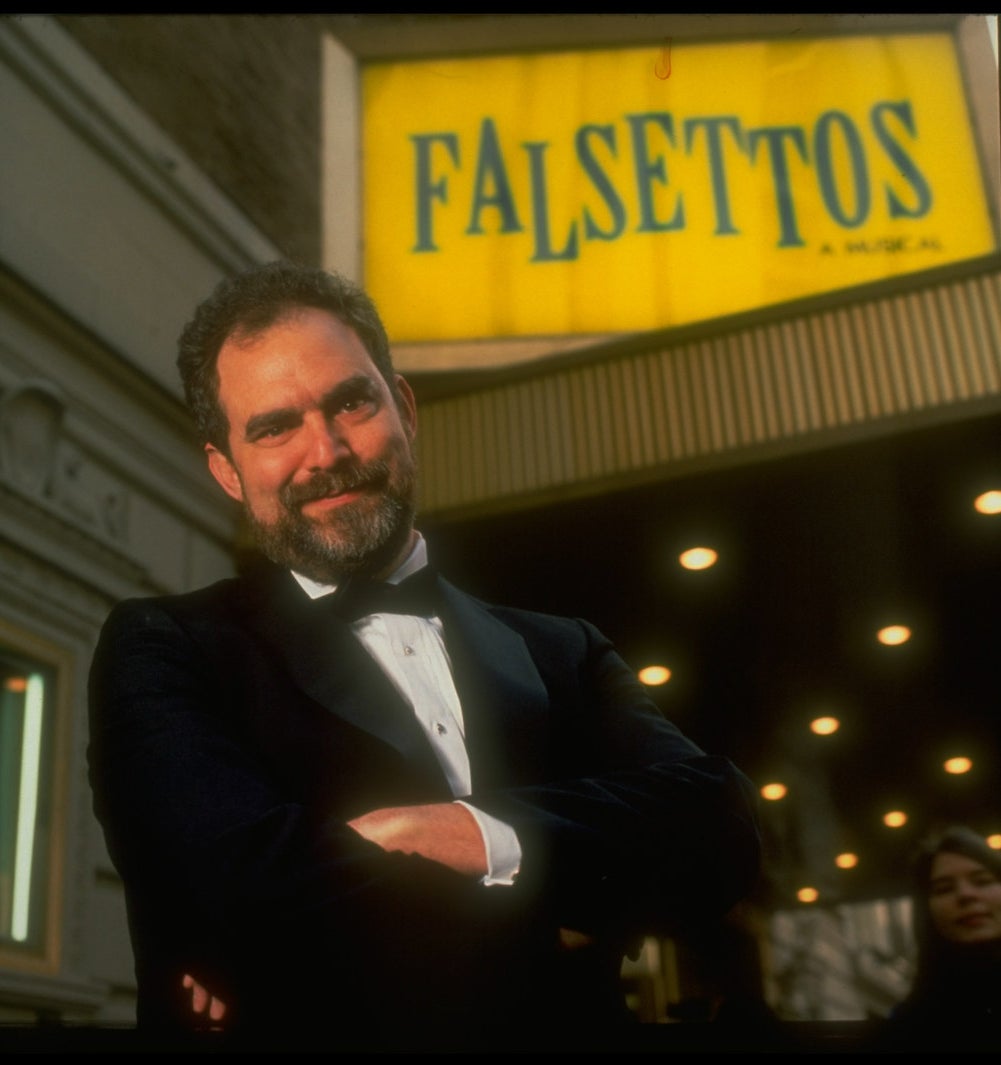
And it was a particularly harrowing period within the theater community, which has long been a haven for gay men. In recounting the development of March of the Falsettos and Falsettoland, Finn told BuzzFeed News that, aside from his fond memories of working on those early shows, “it was a horrible, horrible time.”
It was a time in which Bishop remembered rushing to several different doctors, not because he thought he was sick but out of a general sense of paranoia. One doctor he saw “thought it was giardia that people had gotten from lettuce leaves,” Bishop said. He was treating his patients based on the assumption that “it was really caused by some kind of amoeba.”
“You can read about it, as we read about the Holocaust,” said Stephen Bogardus, who played Whizzer in March, Falsettoland, and Falsettos. But, he added, “if you didn’t live it, you don’t know.”
Bogardus was careful to note that he was only a witness, a straight man who remained healthy, but who was surrounded by close friends and colleagues becoming sick and dying. He based his performance as Whizzer in part on a close friend who died in 1987. “He fought tooth and nail. He was in an AIDS ward, but never would admit that he was in an AIDS ward,” Bogardus said. “People just didn’t want to be stigmatized. So many families turned away from their kids.”
Michael Rupert, who played Marvin alongside Bogardus’s Whizzer in those three productions, recalled working on a project with Bob Fosse in the ’80s and being astounded when Fosse disclosed to the cast that he had hired a dancer with AIDS. Everyone embraced the man, but as Rupert noted, “A lot of choreographers and directors never would have hired him, because back then it was not a manageable disease.”
All of the original Falsettos actors, writers, and producers who spoke to BuzzFeed News shared somber stories of working in an industry that was indelibly marked by the AIDS crisis. It was, in large part, the horror of the epidemic that inspired Finn and Lapine to return to Marvin and his family with Falsettoland, a darker and more mature but still wildly witty sequel.

“Bill and James wanted to deal with what was so deeply affecting all of us at the time,” said Chip Zien, who played Mendel, Marvin’s psychiatrist, in March, Falsettoland, and Falsettos. “You still had to have a viable show, but you had to also address, and find some way to walk that razor's edge of, We are doing this show but it's really important and we feel we’re the first people to really, really deal with it. And I think Bill felt an enormous responsibility to live up to it.”
Although Falsettoland was originally produced in 1990, it was deliberately set in the early ’80s in an effort to capture the painful uncertainty of the time. Marvin’s neighbor Charlotte is a doctor who notices the pattern among seemingly healthy gay men who fall suddenly ill and die. But all she can articulate in the song “Something Bad Is Happening” is that this strange disease is spreading and few people are paying attention.
“There’s a beautiful, very sad part of the play that these characters believe that chicken soup could make [Whizzer] well,” said Stephanie J. Block, who plays Trina in the revival. In the same scene, it’s suggested that Mendel might be able to offer a psychological cure, and Jason wonders if chess could help. Their attempts at curing Whizzer seem tragically useless to a modern-day audience, but their efficacy is not much different than that of the medication Dr. Charlotte is haplessly throwing at her patient.
To see the AIDS epidemic portrayed onstage as it continued to kill thousands of people was both validating and unbearably sad. There was a power in telling these stories that were, by and large, not being told elsewhere. Zien recalled the devastating experience of visiting with friends who, despite being seriously ill, had come to see the show. “It was brutal,” he said. “And in another way, beautiful that we could somehow express these feelings. And people’s lives were changed by it.”
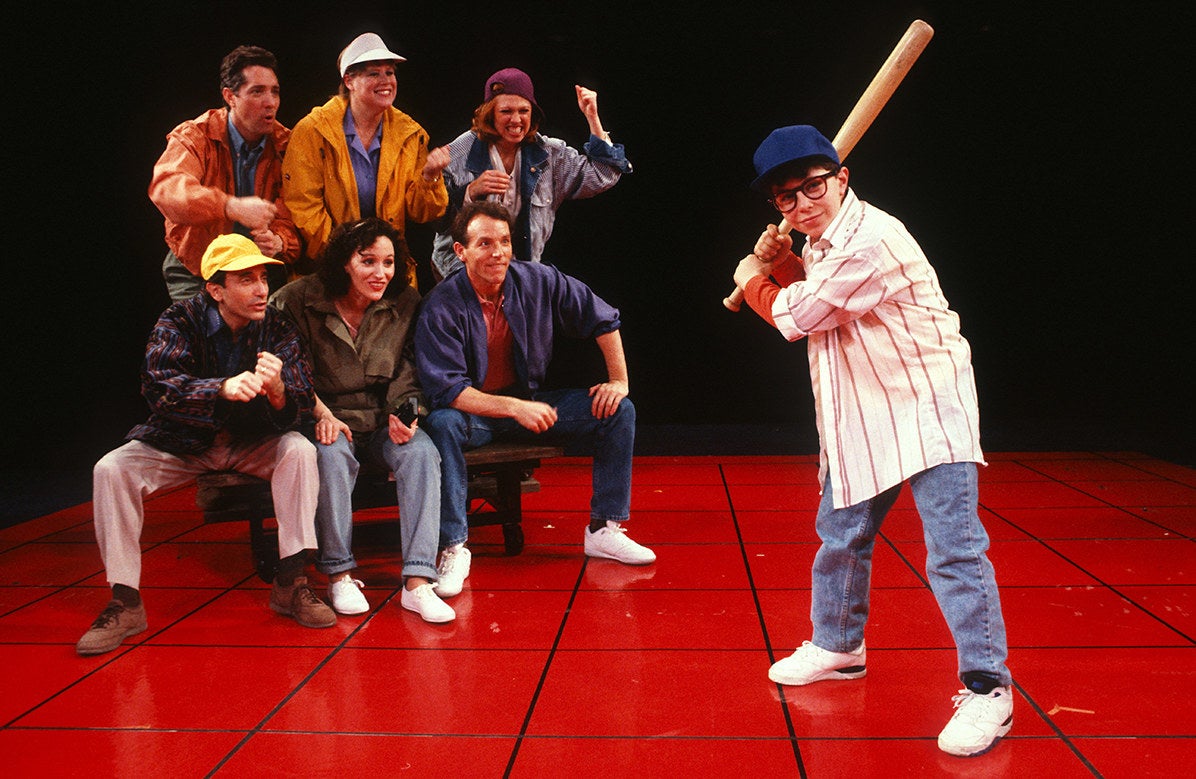
Roth was a fan of Falsettos long before he had a hand in reviving it. After seeing the ’92 production, he was so moved that he sent fan mail to Bogardus, in which he praised the show and the actor’s performance. The letter, Roth admitted, also made his crush on Bogardus clear. “He wrote me this very sweet letter back,” Roth recalled, “and I remember, of course, [him] also very kindly mentioning his wife.”
When Roth was seated next to Lapine at a dinner years later, Lapine asked him what his dream show to revive would be. Roth didn’t hesitate before answering that Falsettos had long topped his list. That night, the seeds of the 2016 revival were planted.
But not everyone was convinced about the viability of a Falsettos revival. Before coming on board, Bishop decided to revisit the last production, which was filmed for the archives at the New York Public Library for the Performing Arts at Lincoln Center. He and Lapine watched Falsettos together and were pleased to discover that the show, for all its early ’90s trappings, felt decidedly modern.
“I went from feeling Hmm, I don’t know to We have to do this,” said Bishop, who called the musical “fresher and more poignant and more prescient.”
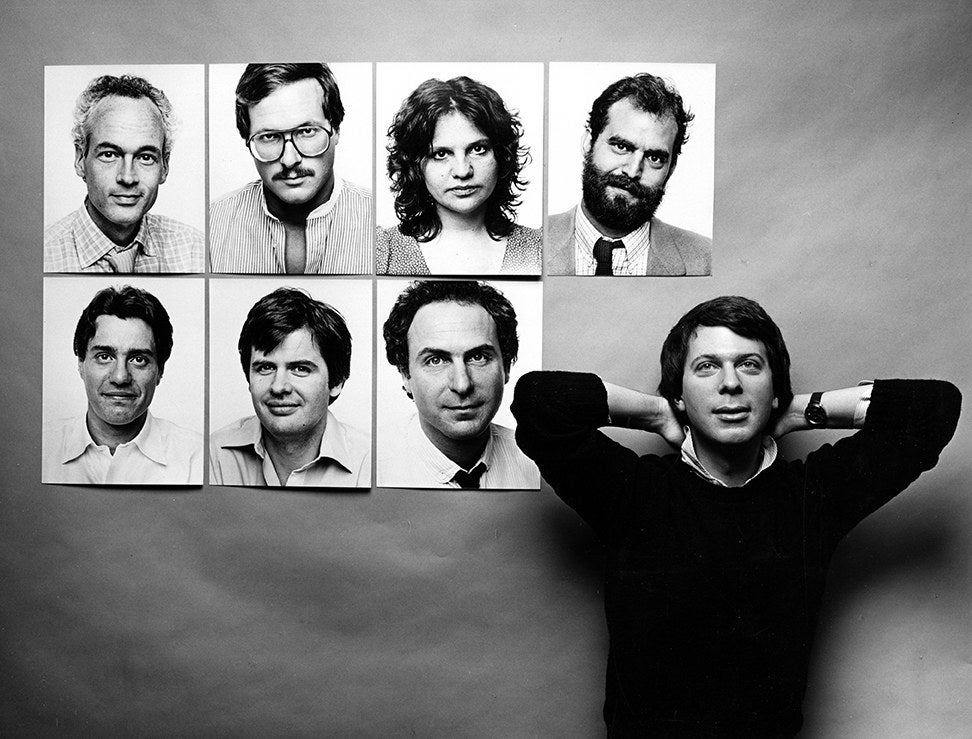
Prior to Falsettos, Bishop had never done a revival of a show he’d previously worked on. Part of that came from a fear of revisiting the past. As Finn put it, calling up memories of those past productions is “very sweet and also a little sad, ’cause we’re so fucking old, but it was just a very special time.”
Finn has been working on the character of Marvin for nearly 40 years. Before March of the Falsettos, there was 1979’s In Trousers, Finn’s very first musical, which introduced audiences to Marvin as he struggled to come to terms with his sexuality and his decision to leave his wife. Marvin was a heavily autobiographical character for Finn, who played the role in early workshops of the show. But while In Trousers was wild and freewheeling, March of the Falsettos was a fairly straightforward story about a gay man trying to repair his relationship with his son. And that was, in part, thanks to Lapine, who helped refine Finn’s somewhat chaotic ideas and worked toward helping the show find that more coherent narrative.
“It was just fun. It was like putting a puzzle together,” Lapine said as he sat in Bishop’s office backstage at Lincoln Center. He described the process of putting everything on index cards and trying to find the perfect balance. “We had this song and this song and this song … ‘This [actor] just had a song, we need to give this next song to somebody else.’”
Then, in April 1981, New York Times critic Frank Rich put the musical and its creative team on the map with his glowing review. After lamenting the state of American musical theater, Rich wrote that March of the Falsettos had songs “so fresh that the show is only a few bars old before one feels the unmistakable, revivifying charge of pure talent.”
Years later, Falsettoland proved to be another major success, earning a handful of off-Broadway theater award nominations. The critical adulation and strong audience response to these shows eventually led to the 1992 production of Falsettos, in which Finn and Lapine put their two shows together with a few slightly revised lyrics and some structural changes. (They threw in a glorious showstopper for Trina, “I’m Breaking Down,” which Finn had written for In Trousers.)
Falsettos was the first time Finn and Lapine’s off-kilter work had been seen on Broadway, a more mainstream venue than their original home Playwrights Horizons and its typically theater insider audience. It ran for over a year, concluding its successful run in June of 1993, and Finn won a Tony for his score and another — shared with Lapine — for the book.
But while talk of a possible revival circulated for years, it would be another two decades before serious consideration was given to remounting Falsettos for a new generation of theatergoers — a generation that only knows the normalcy of marriage equality and PrEP.
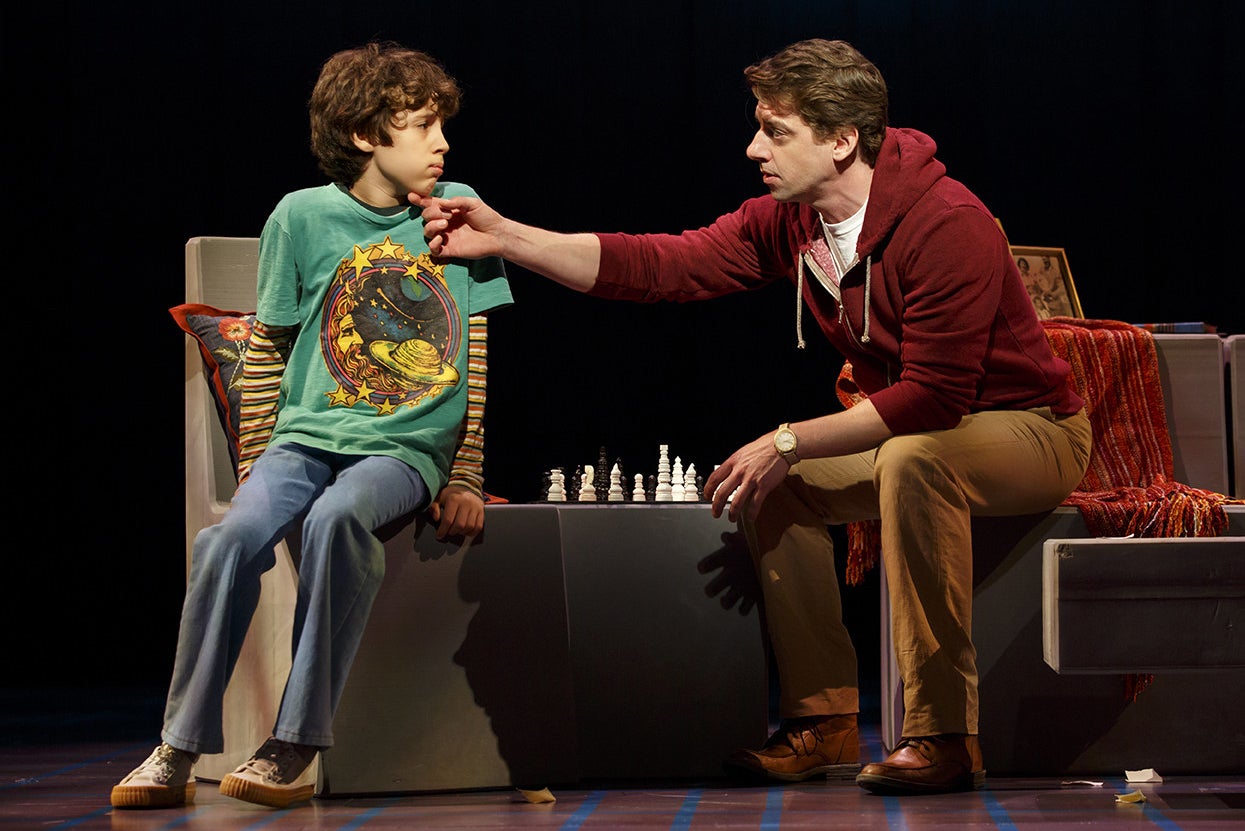
In rehearsals for the revival, Lapine had to give Anthony Rosenthal, the young actor playing Jason, the context to understand a show set more than 20 years before Rosenthal was born.
“Being gay is very much a part of our mainstream and is very much a part of Anthony’s everyday life,” Rannells said of his 12-year-old co-star. “In his mind, it’s really not an issue. He hadn’t learned that it was a problem.”
It’s a very different world from the one in which Zien didn’t even realize Marvin, whom he played in In Trousers, was gay. While rehearsing the song “Whizzer Going Down” — the double entendre is now readily apparent — he said he “literally asked Bill Finn, ‘I don’t get this going down thing.’ I said, ‘Where? Like, to Florida? What are you talking about? What’s going on here?’”
It was a more naive time in some ways, and the tolerance among those working in the theater did not necessarily extend beyond the stage. Zien still remembers Richard Eder, then the drama critic for the New York Times, dismissing In Trousers as a show about “syphilitic sailors.” Two years later, Eder’s replacement Rich gushed over March of the Falsettos. “There was a different atmosphere by the time we got from In Trousers to March of the Falsettos,” Zien said.
"It’s relevant because our tolerance in this country is being questioned and challenged."
But there was still an element of caution and a question of how far to push the envelope. “I don’t think you doubt that there was a relationship, that these two guys wanted to be together, but I would play it completely different if I were a young person today,” Bogardus said of his character’s relationship with Marvin in Falsettos. “And part of that is probably the times.”
In discussing the original production now, Lapine and Finn disagreed over whether there was ever a serious discussion about including a kiss between Marvin and Whizzer. In their interview with BuzzFeed News, Lapine insisted that Finn wanted one. “I wish I did!” Finn shot back. “I think I was spineless, and I said I want to be more successful.”
In the revival, which Lapine is again directing, Marvin (Christian Borle) and Whizzer display a more overt sexuality. They kiss, they canoodle, and while the show as a whole is far from steamy, the sexual chemistry between its gay characters has never been more openly depicted.
Still, the version of gay life in the Falsettos revival — in which spouses and partners are called “lovers” or “friends” — does seem outdated, which is another pertinent reminder that conversations over the changing shape of gay identity persist.
“Historically there’s so much that’s taken place for the gay community. In some ways, we’re a different world,” Barbara Walsh, who played Trina in the original production of Falsettos, told BuzzFeed News over coffee at a Starbucks on the Upper West Side. “In some ways, we’re more tolerant. In some ways, we’re not. I think it’s relevant — like, beyond relevant — because our tolerance in this country is being questioned and challenged.”
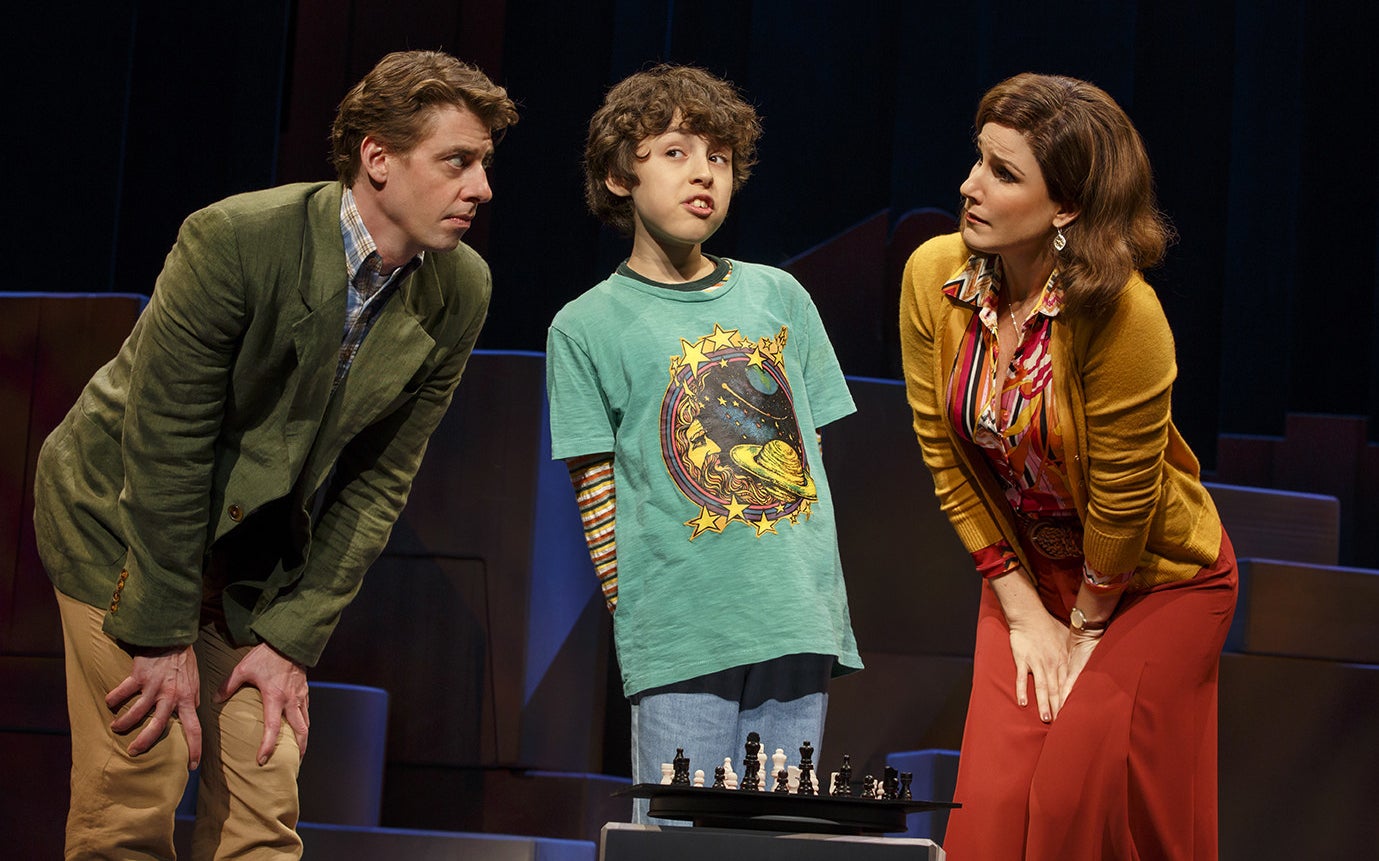
There have been few bigger changes to gay identity in the years since Falsettos was last on Broadway than marriage equality. The widespread acceptance and now legalization of same-sex marriage in the US has had a profound effect on our conception of family, and in that respect, Finn and Lapine’s work seems especially ahead of its time: Marvin’s “tight-knit family” — in which he shares parental responsibilities with his ex-wife, her new husband Mendel, and his boyfriend Whizzer — is no longer far-fetched.
“That vision of what a family might be was a dream,” Bishop said. “And now, to some degree, it has become a reality.”
Falsettos’ concern with what it takes to form a family is one of its strongest themes; it is also, as far as Borle is concerned, what will make it most relevant to a 2016 audience. “For young people, old people, there's something universal about how we now are trying to define family,” he said. “What does family mean? Why are we going to the Supreme Court to fight for a new definition of what that could possibly be?”
"That vision of what a family might be was a dream. And now, it has become a reality."
Gay people have long rejected the traditional notion of what a family is. Queer identity has often coincided with a reliance on chosen family, a group of people who offer unconditional love and support regardless of blood ties — and that likely won’t change. Act II of Falsettos repeatedly references a “teeny-tiny band”; the show ends with the group huddled tightly together as they mourn Whizzer’s death.
But there is something profound about the way “family values,” once a term used expressly to exclude gay men and women, has shifted to incorporate so-called alternative families.
“When we did these shows, if you had told me that I would be a) married to a man, and b) have an 18-year-old daughter — if you had told me that when these shows were on, I would have said, ‘Are you completely out of your mind?’” Bishop said. He brought up the song “Unlikely Lovers,” sung by Marvin and Whizzer alongside Dr. Charlotte and her girlfriend Cordelia, played by Tracie Thoms and Betsy Wolfe in the revival. “My life as a gay man had so many unlikely turns that I wouldn’t have thought of when I was in my thirties. So whenever I hear that song, it’s the ‘unlikely’ that hits me.”
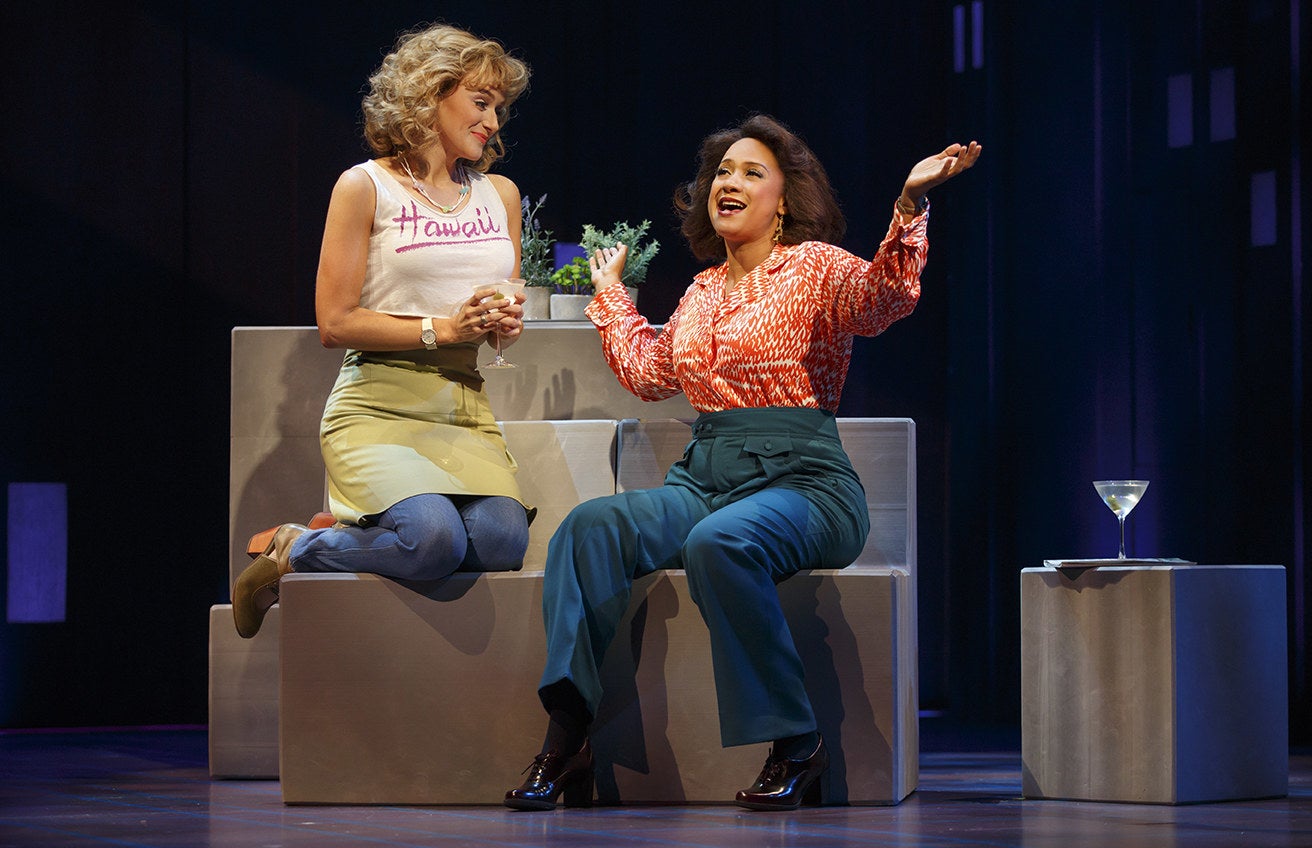
Falsettos was not written to be expressly political, but by rooting itself firmly in the social and sexual politics of its time while also envisioning a not-so-distant future of acceptance, the show had a profound impact. “We just knew we were doing something outstanding, and something necessary, without getting political or activist about it,” Walsh said. “We just knew that we were pushing the envelope with the material at that time, and that it was incredibly unique and special.”
The fact that Falsettos’ cultural agenda, whether deliberate or not, has largely come to pass doesn’t take away from its potency. In fact, the show works especially well now that such massive strides have been made. And the aspects of Falsettos that are relics of the past made the creative team all the more adamant about bringing it to a generation that wasn’t around for the horrors these people witnessed. The new crop of actors, along with a 2016 audience, provides a contrast that underlines the significance of the show’s themes. “They’re bringing a sense of the social history,” said producer Ira Weitzman, who has been working with Finn since In Trousers. He then turned to Finn and said, “Stuff that you wrote, Billy, that was a little out there when you wrote it now has a context and history that seems of this moment.”
Wistfully, Weitzman added, “Everything came true that was in that show.” ●
CORRECTION
André Bishop is the Lincoln Center Theater producing artistic director, and he was the sole producer of March of the Falsettos and Falsettoland. A previous version of the story misstated his title and his role in those productions.
